I wasn’t going to write about Handel’s Rodelinda, wasn’t even intending to go, but thanks to the kindness of the press office at ENO I did, and it was so marvellous that I can’t resist expressing my delight. Not that it was ideal — no production of Rodelinda is, or, I’m beginning to suspect, can be. The musical side of things, actually, was close to perfect, but Richard Jones seemed to be in several minds about what kind of work it is, and indulged in an orgy of director’s gimmicks, gleefully abetted by the set designer Jeremy Herbert. Set in fascist Milan, the show was redolent of Glyndebourne’s 1998 production, which took its inspiration from silent movies in the exaggerated posturing of its heroes and, especially, villains. At ENO we have a set of two rooms, one occupied by the baddies, then across a narrow corridor — plenty of doors to slam and reappear through — the intensively surveyed room where they keep their prisoners. Other sets appear, including an imposing fascist monument to the presumed-dead hero Bertarido, and extra storeys, but the original returns.
The question for the director to settle is: how seriously are we to take this drama, which does end happily, with all but the most disgusting villain rejoicing, the good rewarded, the evil converted? But that, it seems to me, is the only sense in which this is a tragicomedy. To send up the villains from the start, and get fairly close to doing that with the heroine and her mute child (here an adult) too, is to diminish, at least to a degree, the grandeur and seriousness of much of the astonishingly inspired music that Handel lavished on this drama. Jones is enough of a sensitive musician to know when to stop the gags, temporarily: for instance, at the end of Act II, as the loving pair Rodelinda and Bertarido are separated by the still vilely intentioned Grimoaldo, they sing farewell to one another from receding rooms, with so powerful an effect that it’s hard to think of many operatic scenes so stirring.
The same goes, even more, for Rodelinda’s Act III solo, which reaches depths of shattering poignancy. More often, though, Jones commits the basic mistake of directors of Handel: scared that spectators, or for that matter participants, will get bored in da capo arias, he has characters doing ridiculous and irrelevant things, which might easily divert attention from the music and thus the state of mind of the singing character. Still, with a cast this strong, Jones mainly loses the battle. The supreme star of the show is Rodelinda, sung with ravishing tone and great intensity by Rebecca Evans; but Iestyn Davies as Bertarido is magnificent, too, and his acting is as concentrated as his singing. The central villain, who finally can’t bear any more of his own viciousness, is John Mark Ainsley, who just about manages to convey the complexity of the character despite his melodramatic gesturing. And the same goes for Susan Bickley as Eduige. The one unregenerate is Garibaldo, taken by Richard Burkhard —and he should have been hammier; but his singing is fine, as is the Unulfo’s of Christopher Ainslie. Christian Curnyn is the conductor, more expressively free than William Christie, and less inclined to masochistically reduced textures. It’s a long time since ENO has provided such a musical feast.
I haven’t much space left for the two musically brilliant evenings I had at Opera North in Leeds. Verdi’s Macbeth, a revival of Tim Albery’s 2008 production, came across as strongly as it had then. The Lady, as Verdi called her, and the most important role, is superbly taken by Kelly Cae Hogan, the stunning substitute Brünnhilde of two years ago. No Macbeth stands much of a chance next to her, but Béla Perencz’s study in uneasy ambition is strongly sung and disturbing in his collapse. Paul Whelan’s Banquo towered oddly over everyone else — physically, I mean. Tobias Ringborg is the fierce conductor. This greatest of Verdi’s early operas — and by a long way — deserves more than one visit.
The next evening Richard Farnes caressed Puccini’s La fanciulla del West into something more plausible than I’d thought possible. I can’t bring myself to take Puccini’s western seriously, and often wonder if he did. The orchestration and the shortage of arias are its most striking features, the plot is the purest hokum, and the music doesn’t so much transfigure as collude with it. Still, Alwyn Mellor as the Girl, the Mexican Rafael Rojas as the Mexican Ramerrez, and Robert Hayward as the snarling sheriff, seemed to believe in it all, as did the many singers with small roles; and the sets are as evocative as economical, a lesson in atmosphere. It makes a fun if forgettable evening.
Got something to add? Join the discussion and comment below.
Get 10 issues for just $10
Subscribe to The Spectator Australia today for the next 10 magazine issues, plus full online access, for just $10.
You might disagree with half of it, but you’ll enjoy reading all of it. Try your first month for free, then just $2 a week for the remainder of your first year.

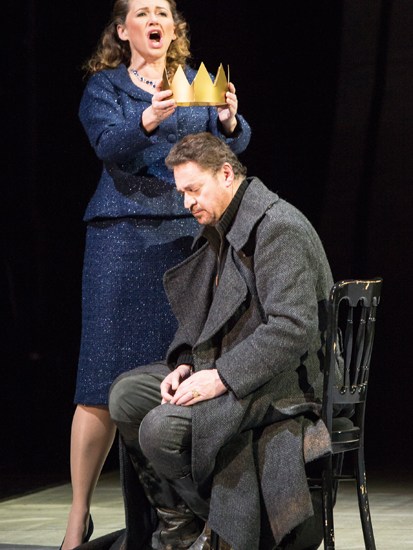
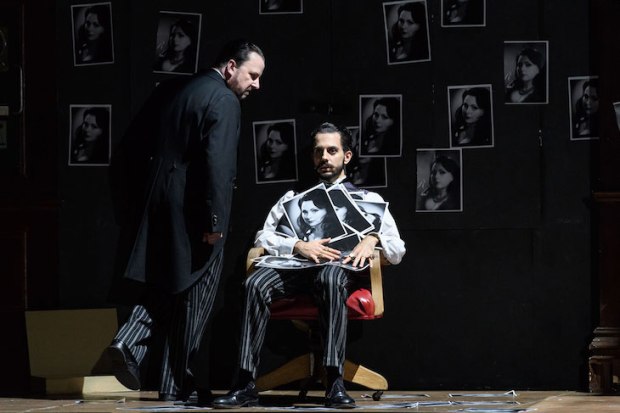
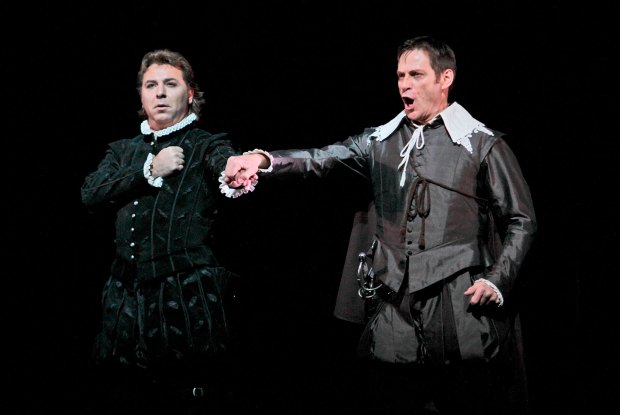
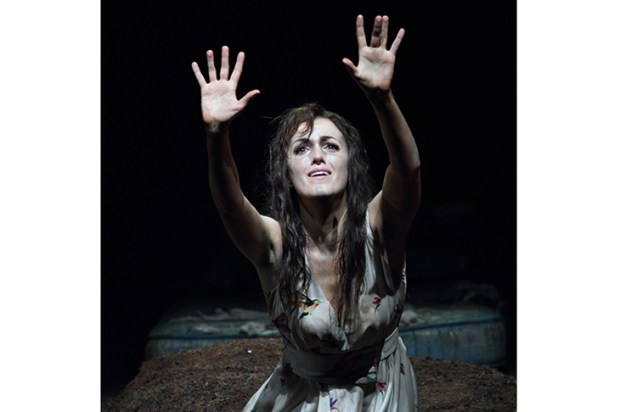
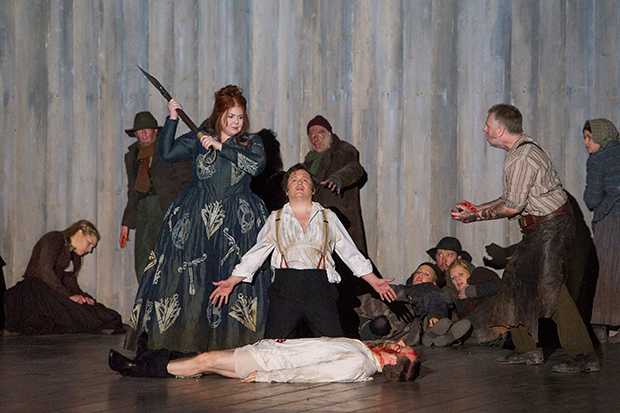
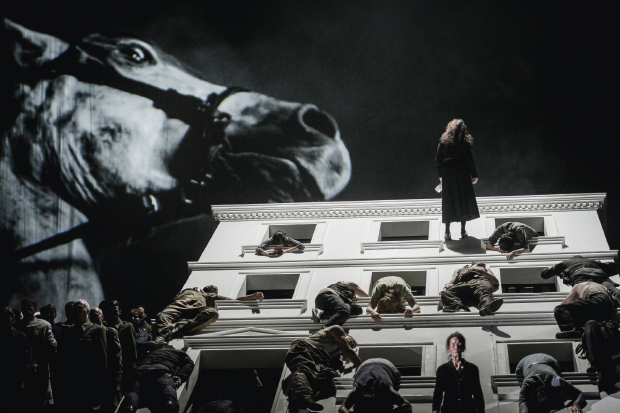
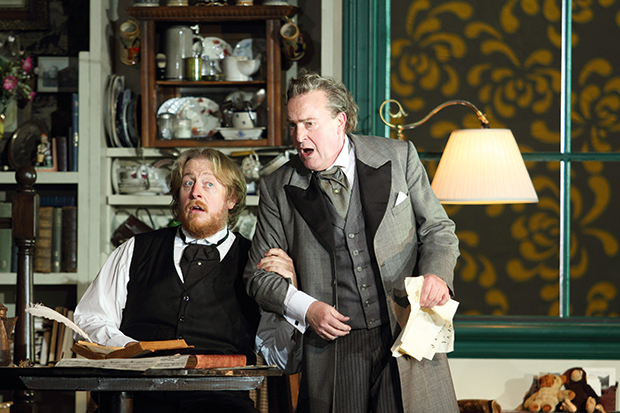






Comments
Don't miss out
Join the conversation with other Spectator Australia readers. Subscribe to leave a comment.
SUBSCRIBEAlready a subscriber? Log in